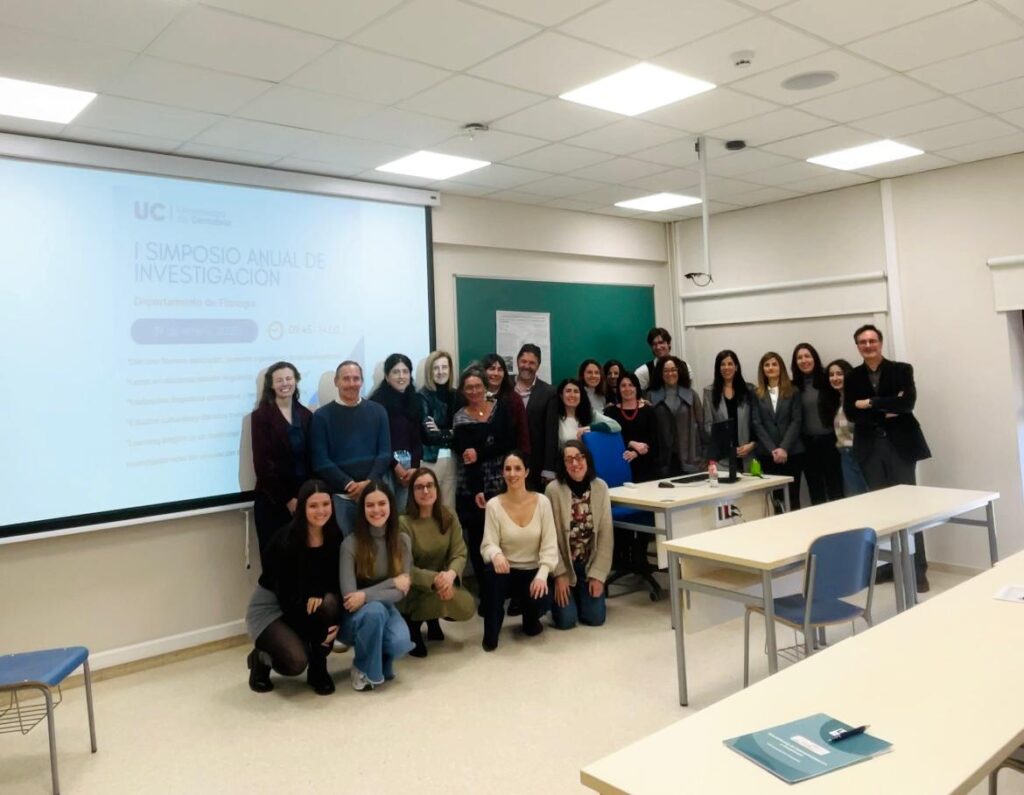At the I Annual Symposium of the Philology Department, held on January 31st, the Learning English as an Additional Language (LEAL) research group presented its latest projects, highlighting its commitment to advancing bilingual education and phonetic competence research.

LEAL members introduced two key projects during the event:
- The Integration of Content and Academic Linguistic Competence in Bilingual Centers in Cantabria (SUBVTC-2023-0011): Prof. Lucila Pérez Fernández, with the collaboration of other LEAL members who assisted in data collection, contributed to this study.
- The Acquisition of English Pronunciation in Primary Education Students in Bilingual and Non-Bilingual Centers (PIEP) (PID2020-115327RB-I00) (2021-2025): This ongoing research examines how primary school students acquire English pronunciation in bilingual and non-bilingual schools.
The PIEP (PID2020-115327RB-I00) (2021-2025) project aims to provide empirical evidence on:
- The impact of instruction type (EFL vs. CLIL) on students’ attitudes, emotions, and strategies towards English pronunciation, as well as their phonetic competence and the influence of their first language and spelling on pronunciation.
- The mediating role of gender in these relationships.
- The connection between perception and phonetic production in young learners.
The analyses will be performed from three perspectives:
- Transversal (assessing 3rd to 6th-grade students separately).
- Longitudinal (tracking development from 3rd to 5th grade and from 4th to 6th grade).
- Pseudo-longitudinal (estimating trends from 3rd to 6th grade).
To gather data, researchers administered multiple tasks, including:
- Biographical data questionnaires.
- Surveys measuring motivation, anxiety, attitudes, strategies, and willingness to communicate.
- Teacher interviews.
- Phonetic tests involving web interfaces, native speaker recordings (in collaboration with LASLab, EHU-UPV), and illustrated stimuli. These tests assessed:
- Perception: Discrimination (AXB, same-different) and identification (minimal pairs with text or images).
- Production: Imitation (immediate-delayed), reading-based pronunciation, and spontaneous speech (storytelling with picture prompts).
Data Analysis Teams
Four specialized teams within LEAL are conducting the analysis:
- Attitudes & Emotional Factors (Francisco Gallardo del Puerto, Pedro Humánez Berral, Alice Henderson & Esther Gómez-Lacabex)
- Phonetic Competence (Francisco Gallardo del Puerto, Esther Gómez-Lacabex, Lucila Pérez Fernández & Julia Williams)
- First Language Influence (Francisco Gallardo del Puerto, Olaia Andaluz Pinedo & Ana González Martínez)
- Spelling and Pronunciation (Esther Gómez-Lacabex, Evelyn Gandón Chapela, Marta Gómez Martínez & Déborath Sánchez Fernández)
Future Research and Doctoral Studies
LEAL also highlighted ongoing postgraduate research projects:
- Doctoral Thesis: Déborath Sánchez, under the supervision of Francisco Gallardo del Puerto and Esther Gómez Lacabex, is investigating the effects of orthography on second-language pronunciation in CLIL and EFL contexts.
- Master’s Thesis: Guillermo Rodríguez Pages is analyzing students’ willingness to communicate during spontaneous speech tasks.
LEAL’s participation in the symposium underscores its dedication to advancing linguistic research and improving bilingual education methodologies. The group continues to foster collaborations and produce data-driven insights that contribute to the evolving field of language acquisition.
